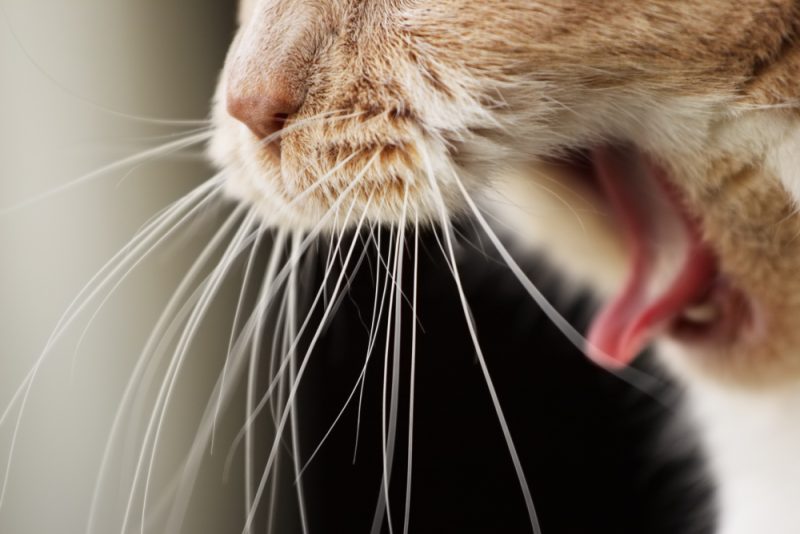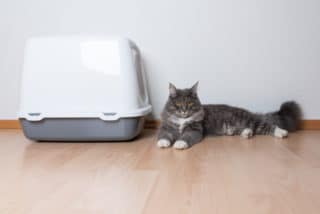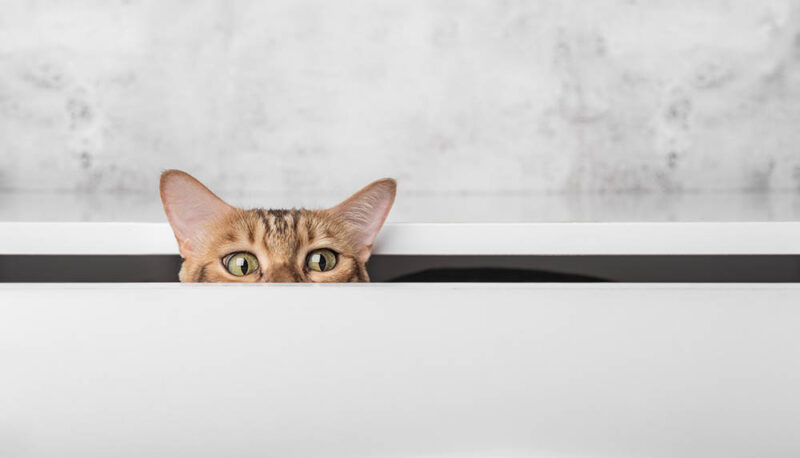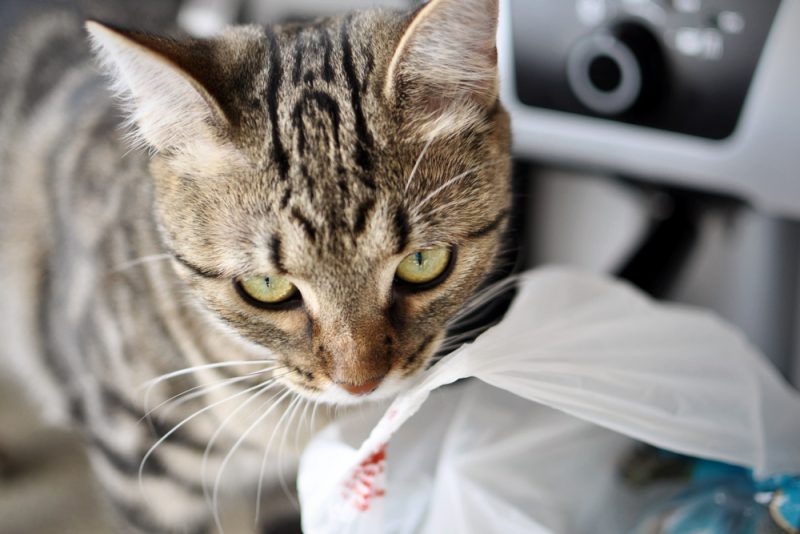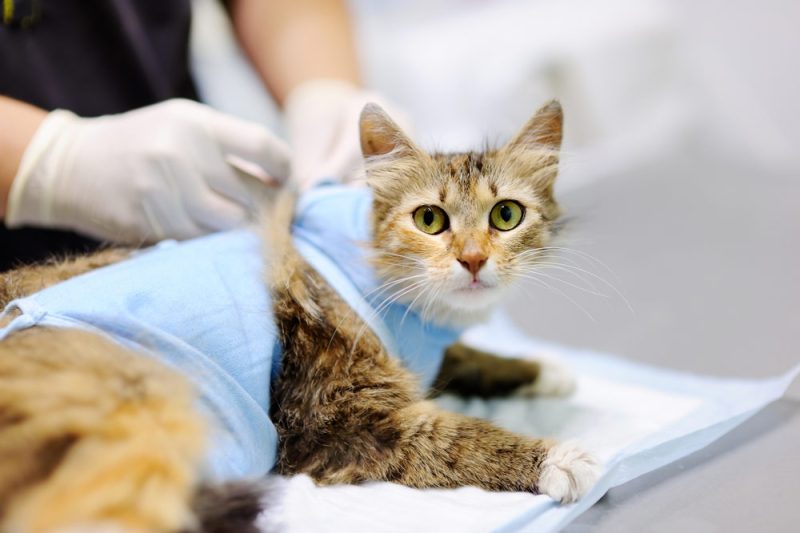In this article
View 4 More +Has your cat started to have an odd meow? Maybe it’s deeper or really squeaky, but there is no doubt about it: something is not right. Let’s examine feline laryngitis, including some of the potential causes and treatment options.

What Is Laryngitis in Cats?
Laryngitis is inflammation of your cat’s larynx, a structure also commonly referred to as the voice box. Viral infections can cause the condition. Some cats have no changes other than a change in the volume or tone of their voice. Other cats may show signs of a respiratory infection, such as sneezing, watery eyes, or even trouble breathing.
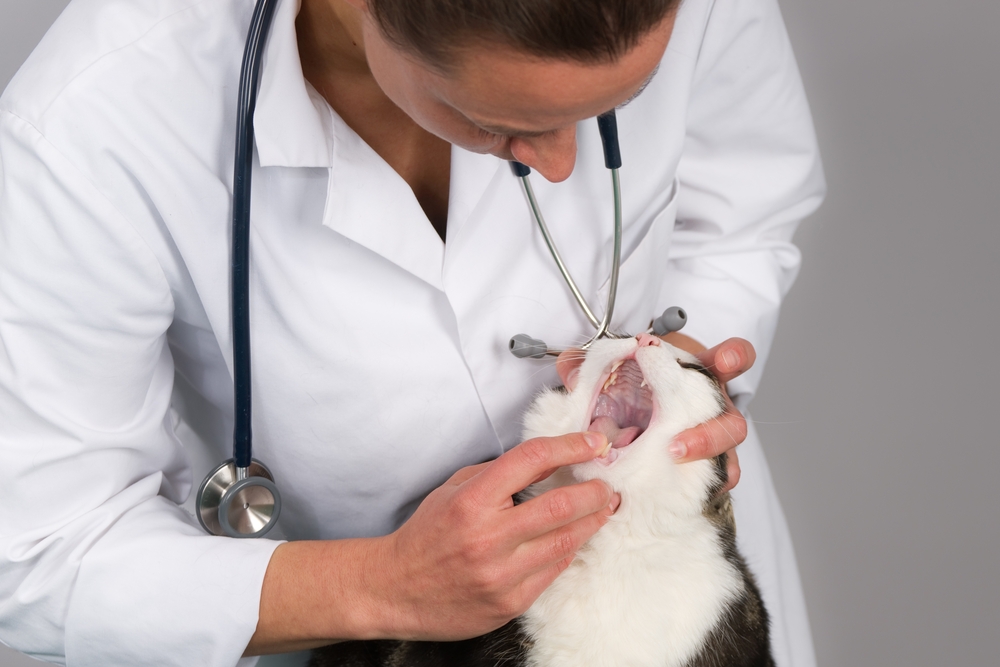

What Are the Signs of Laryngitis in Cats?
You’ll typically be able to identify that something is wrong by a change in your cat’s voice.
- Open-mouth breathing
- More noise than usual when breathing
- Wheezing
- Coughing
- Panting
- Sneezing or runny nose
- Trouble swallowing
- Bad breath
- Holding their mouth open
- Fever
- Lethargy
- Unwillingness to eat
What Are the Causes of Laryngitis in Cats?
Laryngitis can be caused by a range of things, including infections. Viral and bacterial respiratory illnesses can easily impact the larynx. If your cat has this type of infection, they might have watery eyes or be sneezing or coughing. A severe case of cellulitis in the mouth could, in theory, extend to the larynx.
Inhaled irritants are sometimes associated with laryngitis. These could include pollen, dust, and even cigarette smoke.
Obstructions can affect the larynx as well. While it’s less common to see in cats than in dogs, foreign bodies can get lodged within the oronasal cavities. Tumors in the throat can also cause issues here. In some cats, thyroid gland tumors can lead to hyperthyroidism and even enlargement of the thyroid gland.
Trauma to the throat can contribute to laryngitis. As difficult as it might be to think about, some cats are choked. A too-tight collar could also irritate the larynx. Some cats develop facial nerve paralysis. This relatively uncommon condition in cats can contribute to laryngitis.
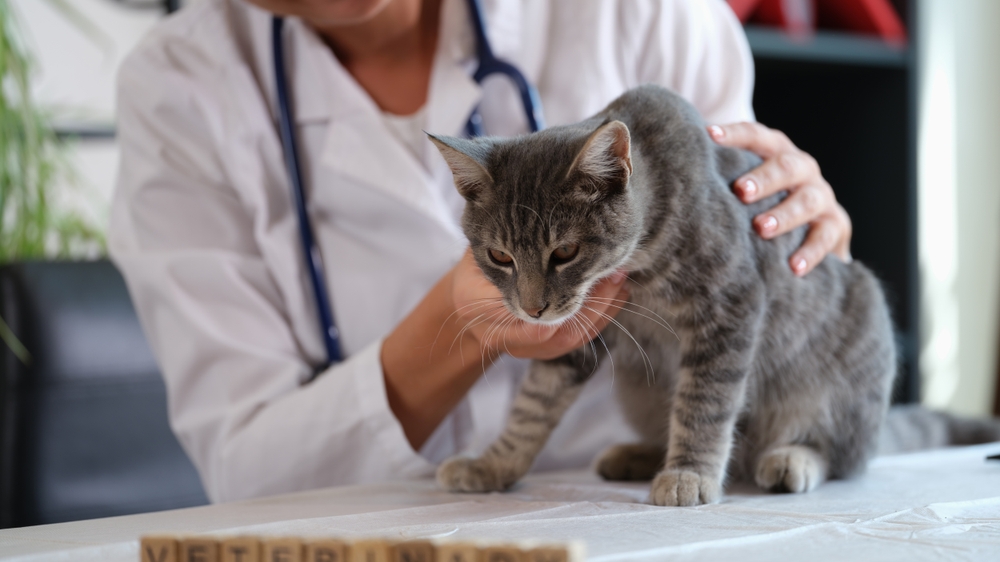

Diagnosing Laryngitis in Your Cat
If your cat makes abnormal noises, it’s worth contacting your veterinarian. They’ll want to start with a complete physical exam. The veterinarian will listen to your cat’s chest and may even auscultate over the kitty’s throat with a stethoscope. The vet will gently look inside your cat’s mouth and palpate their throat for size changes, painful areas, and more.
If your cat appears to have a respiratory infection, the veterinarian might swab the throat for a PCR panel to determine the infectious agent contributing to the infection.
Blood work is quite helpful. Elevated white blood cell counts can indicate infection. A thyroid level helps your veterinary team assess your cat’s thyroid function in case your cat is hyperthyroid.
Your vet might use different forms of imaging. Radiographs (X-rays) help examine for structural changes. An ultrasound might be used to look for fluid pockets. A long, flexible camera called an endoscope might be used to image the area internally.
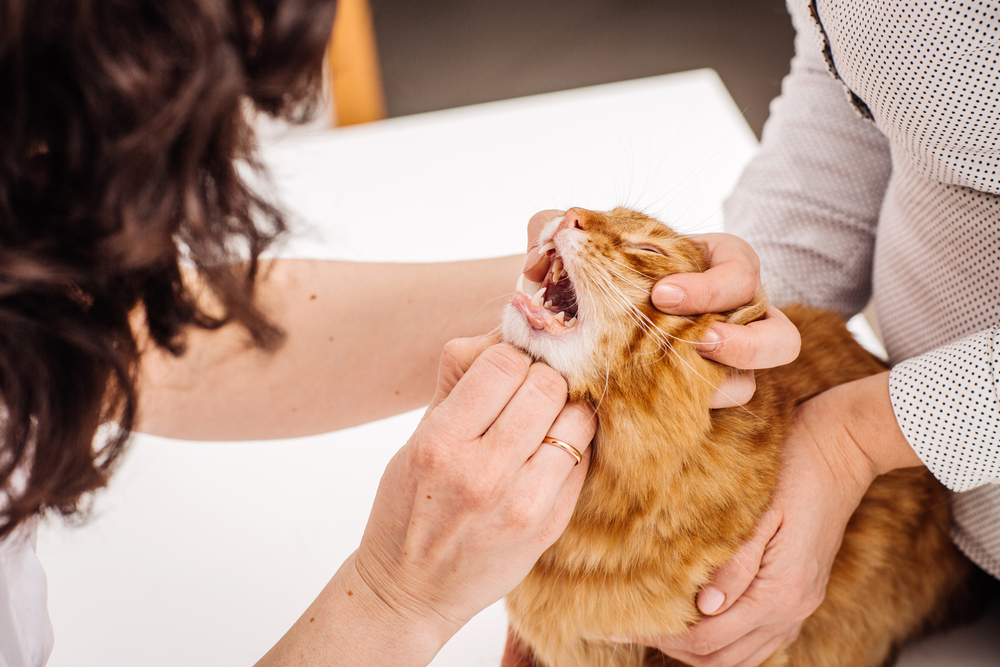
How Do I Care for a Cat With Laryngitis
Treatment varies for cats with laryngitis. If there is evidence of a bacterial infection, antibiotics are often used to treat the disease. One such example is Clavamox, a potentiated version of amoxicillin.
Anti-inflammatory medications might be needed. The two main non-steroidal anti-inflammatory drugs that we use in cats are Onsior (robenacoxib) and Metacam (meloxicam). Instead of an NSAID, your veterinarian might suggest prednisolone, a steroid.
Beyond pharmaceutical options, some cats need supportive care. If your cat doesn’t panic, steam up the bathroom with a hot shower and then bring your kitty into the room. The warm air can moisten airways and loosen secretions.
If your cat has eye or nasal discharge, gently wipe the drainage away with a clean, damp cloth. If this discharge sits there, especially in a long-haired cat, it can irritate the skin. Your veterinarian might suggest changing your cat’s food. A softer food may be easier for your cat to swallow and more enticing to a cat with a stuffy nose. Canned foods are your go-to, but some dry foods can be softened with warm water. Just make sure the water isn’t too warm.
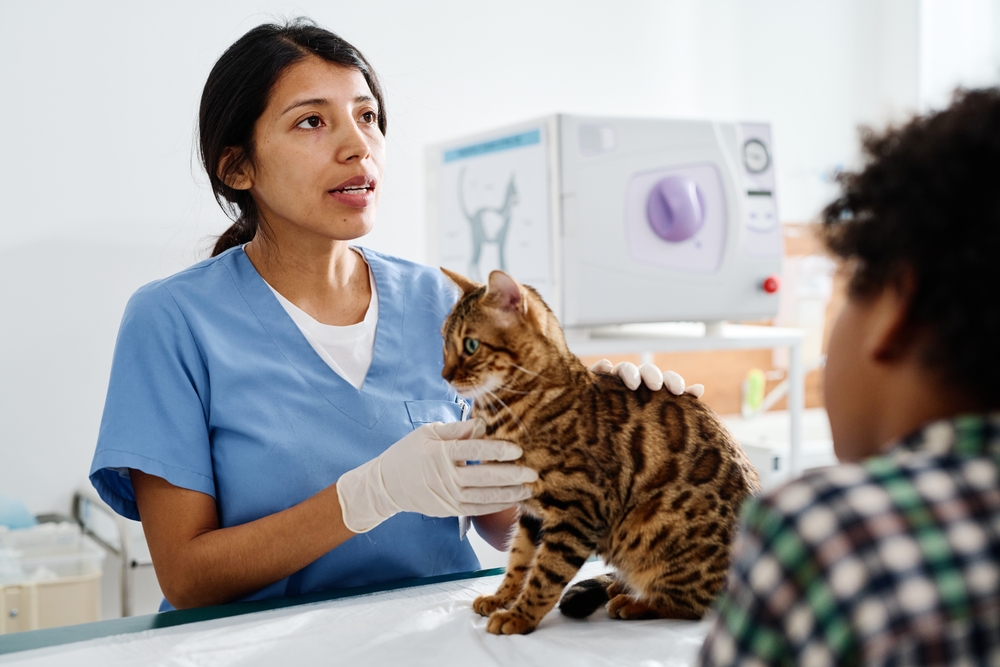

Frequently Asked Questions
Is laryngitis in cats contagious?
Laryngitis is not typically contagious, but the underlying cause, such as a virus or bacterial infection, can sometimes be contagious. Speak to your veterinarian to see if you will need to isolate your sick kitty.
Is laryngitis permanent in cats?
Most cats will recover from their bout of laryngitis, but if it is significant enough, the cat could permanently damage their larynx. Nerve damage or swelling could be permanent.

Conclusion
We hope this article helped answer any questions you had about what to do if you notice a change in your cat’s meow, tenderness, or swelling when you touch its throat or lethargy. The safest thing would be to have your cat examined by a veterinarian. These changes could indicate laryngitis and need treatment.
Featured Image Credit: Cat Box, Shutterstock

